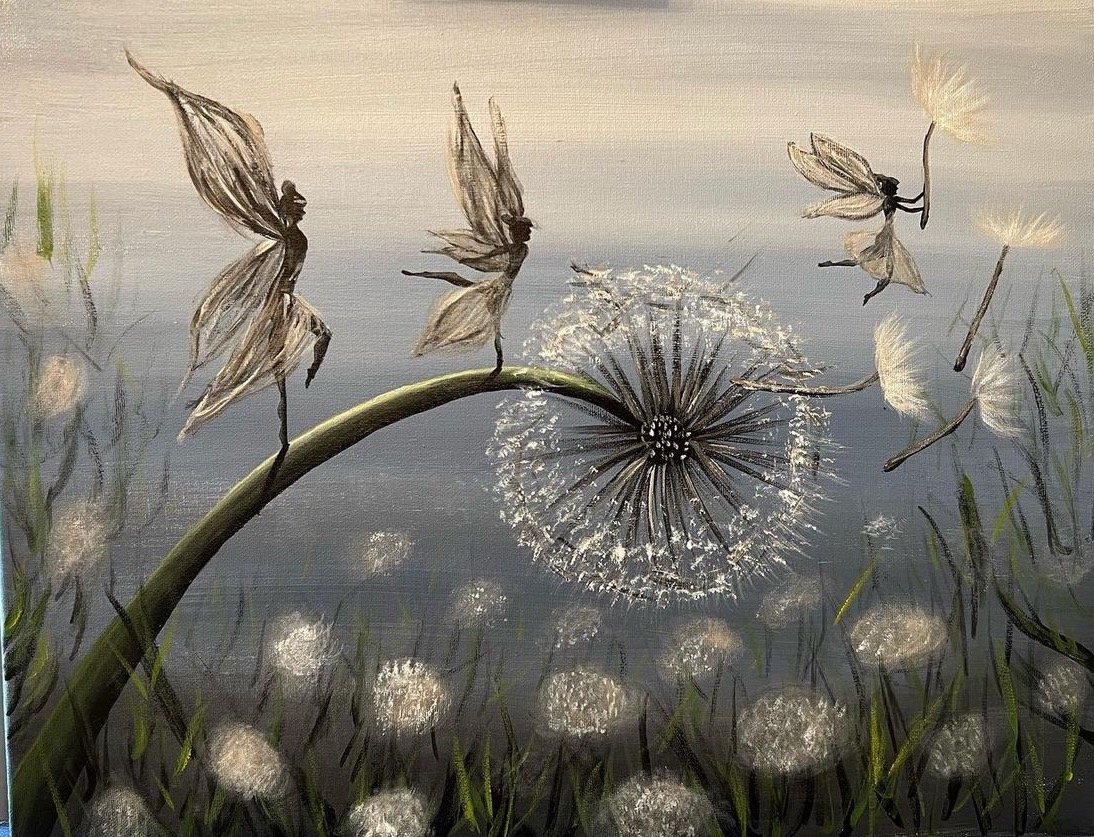Perfectionism
For decades, I desperately wished that I could paint... anything. While I considered myself to be somewhat creative in other ways, one thing I was convinced of was that I was not a visual artist of any kind, whatsoever, at all. When I was asked to draw something, I wouldn’t even try to produce anything beyond stick figures. So for years, I would longingly watch artists create life on canvas with more than a twinge of envy. Since I knew I wasn’t going to be really good at it, I didn’t even want to try.
Then, one day I came across a quote by Vincent Van Gogh:
“If you hear a voice within you say 'you cannot paint,' then by all means paint, and that voice will be silenced.”
I ignored the nudge at first, but over the next few weeks, that sentence kept popping into my mind. So I finally gave in and took a drawing class. While I wasn’t great at it (at all) right out of the gate, I eventually did learn some techniques. Next, I took some painting classes and learned a few more things. I’ve been painting now for several years, and I even sold a couple of paintings to a few generous supporters. My work will likely never end up in museums, and I don’t think that I’ll have a career as a visual artist. There is nothing perfect about my work, but it brings me joy, and I’ve learned that joy is a good enough reason to paint.
As I have been on my perfectionism recovery journey, one thing that really helped me has been distinguishing “perfectionism” from “healthy striving.” One way I can tell the difference is that perfectionism is often focused on what others think of me. The voice of perfectionism asks something like, “What will they think of me if I fail?” Healthy striving is intrinsically motivated and comes from a place of self-compassion, which asks questions like, “How can I do my best?” “What brings me joy?” “Who do I want to be in the world?”
One of the best ways I encourage my clients to recover from perfectionism is to simply CREATE without expectation and preferably through a medium that is not entirely comfortable. If you’ve always wanted to write poems, but were afraid that you weren’t any good, write a poem! See what happens. When you emerge from the exercise unscathed, you will see that you were never in any danger after all, and your writing doesn’t have to be perfect to be enjoyable. And just like with mindfulness practice, try to notice when self-judgment shows up. You can give your inner critic a name like “Critical Carly” or “Ned the Nay-Sayer.” You can say to your inner critic, “Yes I see you there, but I’m going to proceed anyway.” We don’t have to listen to the voice of perfectionism. It’s okay and even advisable to fumble forward in spite of that voice. This is how we learn. This is how we grow. This is how we become who we want to be in this world.
“Ring the bells that still can ring
Forget your perfect offering
There is a crack in everything
That's how the light gets in.”
-Lenord Cohen
Life is beautifully imperfect. It’s wonderfully flawed with cracks, missteps, and wrinkles. Our imperfections are what make us unique and they are also what make us human and it’s actually those imperfect human qualities that are what we connect to in others.
Our never-ending pursuit of perfection has the potential to cause us to miss out on what is actually here... our imperfect, glorious, messy, unique, one-and-only life. Through mindfulness practice, we learn how to embrace what is. We practice opening to all of life including the good, the difficult, and the imperfect. So if you hear a voice telling you that you can’t do a thing, by all means, do that thing and the voice will be silenced.
NOTE: Below is my latest imperfect painting… “The Big Adventure”

